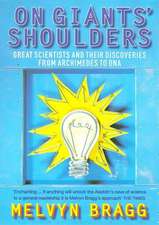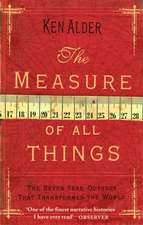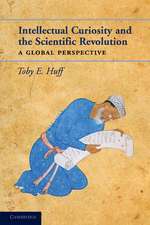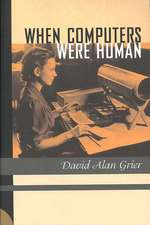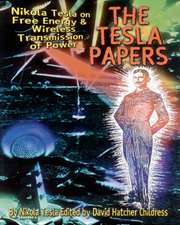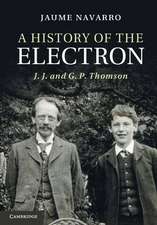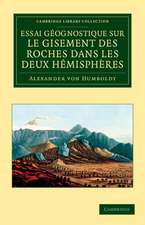Communicating Science: Professional, Popular, Literary
Autor Nicholas Russellen Limba Engleză Hardback – 14 oct 2009
| Toate formatele și edițiile | Preț | Express |
|---|---|---|
| Paperback (1) | 374.21 lei 6-8 săpt. | |
| Cambridge University Press – 14 oct 2009 | 374.21 lei 6-8 săpt. | |
| Hardback (1) | 757.52 lei 6-8 săpt. | |
| Cambridge University Press – 14 oct 2009 | 757.52 lei 6-8 săpt. |
Preț: 757.52 lei
Preț vechi: 880.83 lei
-14% Nou
Puncte Express: 1136
Preț estimativ în valută:
144.95€ • 151.34$ • 119.97£
144.95€ • 151.34$ • 119.97£
Carte tipărită la comandă
Livrare economică 04-18 aprilie
Preluare comenzi: 021 569.72.76
Specificații
ISBN-13: 9780521113830
ISBN-10: 0521113830
Pagini: 350
Dimensiuni: 152 x 229 x 24 mm
Greutate: 0.68 kg
Editura: Cambridge University Press
Colecția Cambridge University Press
Locul publicării:Cambridge, United Kingdom
ISBN-10: 0521113830
Pagini: 350
Dimensiuni: 152 x 229 x 24 mm
Greutate: 0.68 kg
Editura: Cambridge University Press
Colecția Cambridge University Press
Locul publicării:Cambridge, United Kingdom
Cuprins
Introduction: what this book is about and why you might want to read it; Prologue: three orphans share a common paternity: professional science communication, popular journalism, and literary fiction are not as separate as they seem; Part I. Professional Science Communication: 1. Spreading the word: the endless struggle to publish professional science; 2. Walk like an Egyptian: the alien feeling of professional science writing; 3. The future's bright? Professional science communication in the age of the internet; 4. Counting the horse's teeth: professional standards in science's barter economy; 5. Separating the wheat from the chaff: peer review on trial; Part II. Science for the Public: What Science Do People Need and How Might They Get It?: 6. The Public Understanding of Science (PUS) movement and its problems; 7. Public engagement with science and technology (PEST): fine principle, difficult practice; 8. Citizen scientists? Democratic input into science policy; 9. Teaching and learning science in schools: implications for popular science communication; Part III. Popular Science Communication: The Press and Broadcasting: 10. What every scientist should know about mass media; 11. What every scientist should know about journalists; 12. The influence of new media; 13. How the media represents science; 14. How should science journalists behave?; Part IV. The Origins of Science in Cultural Context: Five Historic Dramas: 15. A terrible storm in Wittenberg: natural knowledge through sorcery and evil; 16. A terrible storm in the Mediterranean: controlling nature with white magic and religion; 17. Thieving magpies: the subtle art of false projecting; 18. Foolish virtuosi: natural philosophy emerges as a distinct discipline but many cannot take it seriously; 19. Is scientific knowledge 'true' or should it just be 'truthfully' deployed?; Part V. Science in Literature: 20. Science and the Gothic: the three big nineteenth-century monster stories; 21. Science fiction: serious literature of ideas or low-grade entertainment?; 22. Science in British literary fiction; 23. Science on stage: the politics and ethics of science in cultural and educational contexts.
Recenzii
'… [an] interesting and important book.' Rachel Zelkowitz, Science News online
'This well-written and well-organised book, illustrated throughout with real examples, is based on the author's postgraduate science communication course at Imperial College London. … the chapter entitled 'What every scientist should know about journalists' should be compulsory reading for scientists.' Chemistry World
'Nick's approach enables anyone to benefit from the book, regardless of whether or not they have experience of disseminating knowledge. … there is no jargon or complicated terminology in the book.' Reporter, Imperial College London
'Russell's book is a well-written, five-part analysis of professional, popular, and literary approaches to scientific communication … an interesting, well-written [book] from beginning to end … leaves the reader excited about delving into scientific writing … a great overview of the development of scientific literature and all of its implications, making it a worthwhile read for anyone interested in the publication of scientific results.' Jens Lichtenberg, Reviews.com
'… well worth a second or even a third reading …' physicsworld.com
'This well-written and well-organised book, illustrated throughout with real examples, is based on the author's postgraduate science communication course at Imperial College London. … the chapter entitled 'What every scientist should know about journalists' should be compulsory reading for scientists.' Chemistry World
'Nick's approach enables anyone to benefit from the book, regardless of whether or not they have experience of disseminating knowledge. … there is no jargon or complicated terminology in the book.' Reporter, Imperial College London
'Russell's book is a well-written, five-part analysis of professional, popular, and literary approaches to scientific communication … an interesting, well-written [book] from beginning to end … leaves the reader excited about delving into scientific writing … a great overview of the development of scientific literature and all of its implications, making it a worthwhile read for anyone interested in the publication of scientific results.' Jens Lichtenberg, Reviews.com
'… well worth a second or even a third reading …' physicsworld.com
Notă biografică
Descriere
Ideal for students and practitioners in science, engineering and medicine, this book gives an insight into science's place in society.





